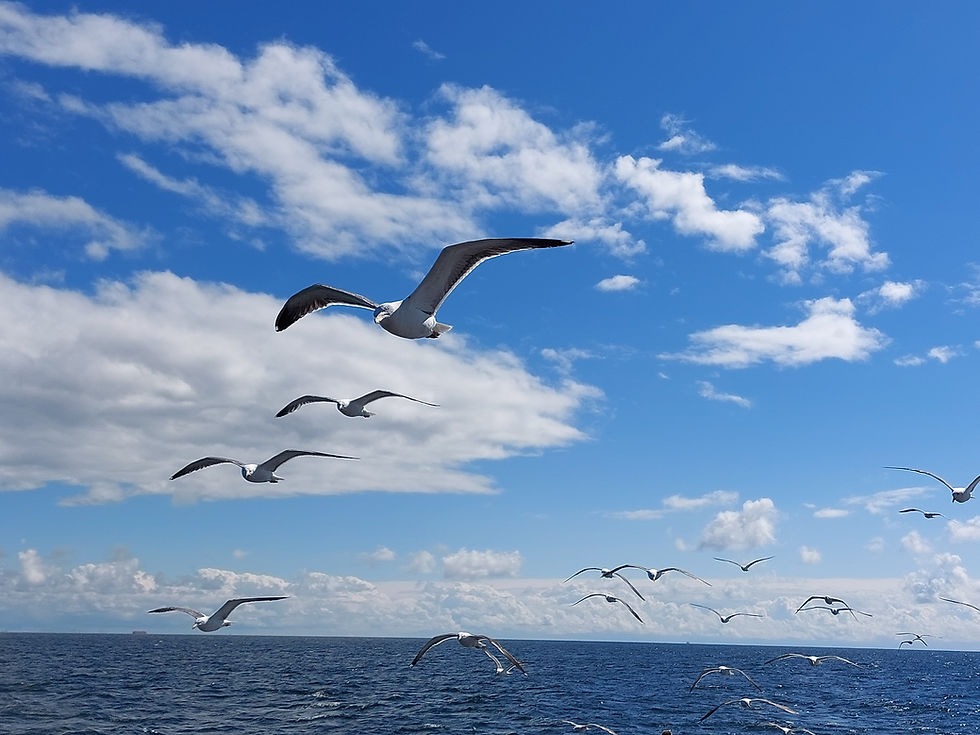The Dutch Royal Couple visits Island Schools partner De Jutter on Vlieland during the Island Schools
- Jun 7, 2023
- 3 min read
Updated: Sep 5, 2023
On Tuesday afternoon, May 9th, Vlieland Island’s De Jutter had an important visit.
De Jutter is Vlieland's youth development centre and, in addition to primary and secondary education, includes a library, youth and youth work and childcare. King Willem-Alexander and Queen Máxima were given a tour and entered into discussions with pupils, parents and teachers about education on an island. De Jutter has a pivotal role in the community and is committed to social projects. By participating in the Island Schools project, De Jutter participates in a network of schools, together with other European islands, looking for opportunities for island schools in particular. The Royal Couple also met pupils from the Island Schools Icelandic partner school who were on exchange.
Due to scarce space and vulnerable nature, there is a shortage of housing. And the housing available is quite pricey. Schools are running empty and healthcare has to be organised on the islands themselves, which is expensive. The economy relies heavily on tourism and the hospitality industry, but workers cannot always be found for these. Accessibility is problematic, as you always have to take the ferry. Because of all this, (young) islanders are leaving and no new ones are coming to take their place.
First stop on Vlieland at De Jutter Anyone who wants to learn something on Vlieland has come to the right place at De Jutter. It is not only a school for students aged 4 to 18, but also a library, centre for music, childcare and youth work all in one. As the only school on the island, De Jutter faces many challenges and opportunities. During the royal couple’s visit, De Jutter’s two directors, along with parents, pupils and teachers talked about these issues.

Mayor of Schier, Co-Chairman Mr Brok, and school director Thijs Speelman introduce the King and Queen to the Icelandic and Vlieland students.
Surrounded by crafts, children's books and a table full of Legos, the king and queen take a seat at the table. “What is it like to be taught on an island?” ask the royal couple. “It is nice and quiet, everyone knows each other well and the younger students can relate to the older ones”, say two students from groups 5/6 and 7/8. “The short lines of communication, the creativity, and growing up in a green
environment are also great about an island school”, parents add.

But there are also drawbacks. For instance, it is difficult to find teachers, says director Cees Visser. Particularly because residential accommodation is not always available. Also, secondary education often involves temporary positions and few hours because the classes are so small. "We need teachers so badly. Otherwise, we cannot keep the school running," Visser said. De Jutter is in the process of providing temporary accommodation for teachers. However, they must be willing to live with colleagues.
Additionally, the measurement methods and guidelines of the Education Inspectorate, which are aimed at large numbers, do not always work well for such a small-scale school. For example, De Jutter does not have all the licences for every level of secondary education. Some students therefore have to divert to Terschelling, the neighbouring island.
"With so many different levels in one class, is there enough attention for each child?" asks Queen Máxima. Some independence is necessary, says the teacher, but the students are very satisfied with the education, say two students from class 1 and class 2. "We are challenged enough. And if you want more or less, you can indicate that."
Opinions are divided on whether students want to stay on the island after their schooling. Some are sure they do, while others are sure they don't: "I want to be a child psychologist, but there are not enough children on the island for that." For some careers, students may unfortunately be forced to move off the island, leading to further depopulation.








Comments